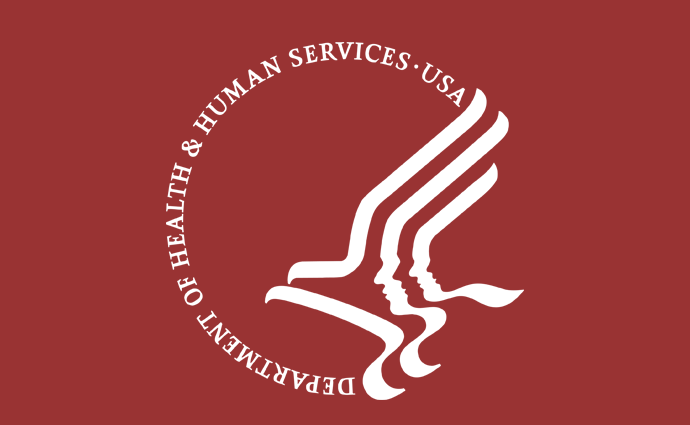HHS: Over Half of States Have Extended Medicaid Postpartum Coverage
Georgia and Pennsylvania have joined 24 states and Washington, DC in extending Medicaid postpartum coverage from 60 days to a full year after pregnancy.

Source: HHS Logo
- Following Georgia and Pennsylvania’s recent approvals to expand Medicaid postpartum coverage, beneficiaries in more than half of all states can now access maternal healthcare services for 12 months after pregnancy, CMS and HHS announced.
Georgia and Pennsylvania are the 25th and 26th states to extend Medicaid and the Children’s Health Insurance Program (CHIP) postpartum coverage under the American Rescue Plan (ARP). Up to 57,000 people in the two states will now have expanded access to postpartum care.
A total of 418,000 people across 26 states and Washington, DC can access postpartum care for a year after pregnancy. As many as 720,000 people could benefit from year-long continuous postpartum care under Medicaid and CHIP if all states chose to expand coverage, HHS noted.
“To all remaining states: I urge you to join our efforts to support healthy mothers and babies and extend access to this critical care,” HHS Secretary Xavier Becerra said in the press release.
“More than half the nation has extended postpartum coverage to a full year after pregnancy. This is a critical milestone in our effort to improve maternal health and equity across the country. President Biden and Vice President Kamala Harris have set a clear plan, and we are taking bold action to confront the maternal mortality and morbidity crisis.”
Federal law requires states to provide Medicaid and CHIP postpartum coverage for 60 days after pregnancy. However, ARP has allowed states to expand coverage to a full year.
HHS and CMS announced in June that Maine, Minnesota, New Mexico, and Washington, DC had received approval to extend Medicaid postpartum coverage. In addition, Hawaii, Maryland, and Ohio recently expanded coverage.
Other states that have increased access to maternal healthcare through coverage expansion include Connecticut, Florida, Illinois, Indiana, Kansas, Kentucky, Louisiana, Massachusetts, Michigan, New Jersey, North Carolina, Oregon, South Carolina, Tennessee, Virginia, Washington, and West Virginia.
Medicaid plays a critical role in maternal health as it covers 42 percent of all births and more than half of all children in the country. Additionally, one in three pregnancy-related deaths occur between one week and one year postpartum, according to the press release.
Extending Medicaid and CHIP postpartum coverage is a key component of the Biden-Harris Administration’s Maternal Health Blueprint, which aims to improve maternal health in underserved communities.
CMS also released a Maternity Care Action Plan with goals to reduce disparities during pregnancy, childbirth, and the postpartum period. As part of this initiative, the agency has released new data indicating if a hospital participated in a state or national program that aims to improve maternal and child health.
Going forward, hospitals will receive a “Birthing-Friendly” designation if they have participated in a quality improvement program and implemented the recommended intervention.
